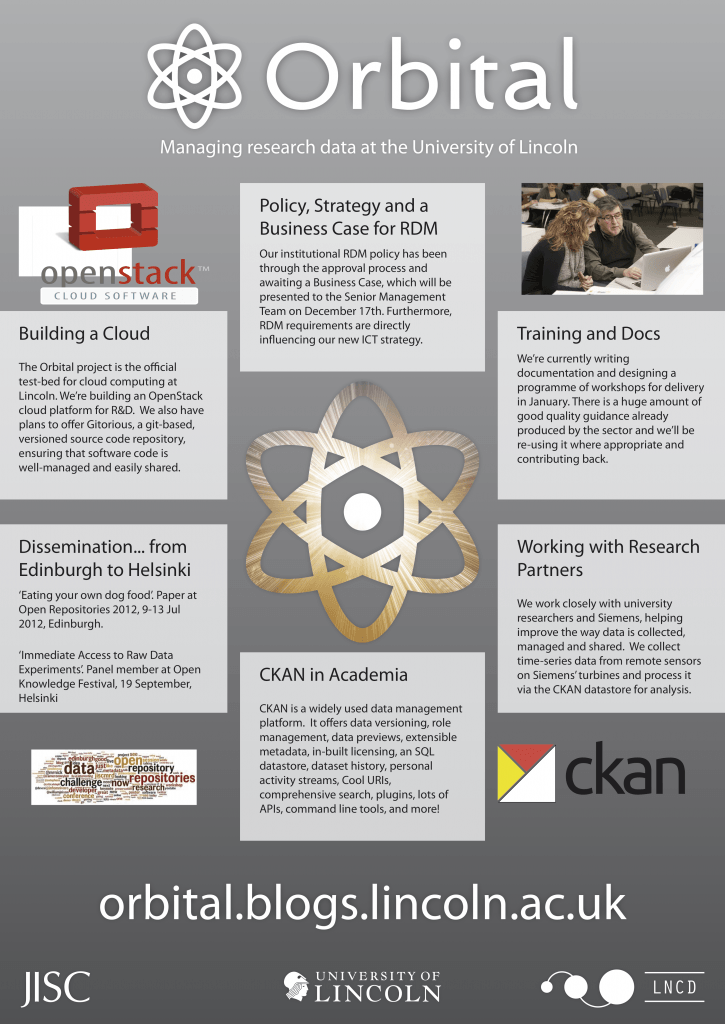I’ve been quiet—too quiet—about the Orbital project recently. While I’ve not been blogging, Joss, Nick and Harry have overseen several fairly important developments:
As Orbital-the-product (coherent set of products, really) develops, my own focus between now and the end of the project (March 2013) will be on Orbital-the-service: training, support, documentation, and implementation of RDM policy at the University of Lincoln. I’ll work closely with the Research & Enterprise department on these aspects.
 As part of this strand of the project (which cuts across workpackages 7, 11, and 12), I want to consider the following:
As part of this strand of the project (which cuts across workpackages 7, 11, and 12), I want to consider the following:
- The current usability of ownCloud, CKAN, EPrints, etc. – what ‘sticking plaster’ help materials do we need to provide right now (if any?).
- How the production of documentation fits in to the software development release cycle (“change management“?) – particularly so in an agile/iterative environment, and how we ensure we meet our responsibility to ‘leave no feature undocumented’ as well as provide adequate contextual information on RDM. Related: I’m thinking about a four-level hierarchy of documentation (see right): how do the different levels relate to each other (how do we ensure internal consistency?), and how do we ensure all four levels are covered?
- [How] should we contribute to an (OKFN-co-ordinated) open research [data] handbook initiative (c.f. the Open Data Handbook; Data Journalism Handbook) instead of—or as well as—writing our own operational help guides? Contributing to and re-consuming community-written RDM materials will be more efficient than writing our own guidebook from scratch, but we need to make sure our local documentation is relevant to Lincoln.
- I’ve already started collated a list of other peoples’ RDM help materials (Joss has collected many more) – I’ll publish the list to this blog soon. I’ll be looking to see what we can re-use. There are some very good, openly-licensed training materials available, but I don’t want us to use them uncritically.
- How do we use our (still not-yet-accepted) RDM policy as a jumping-off point for training events?
- What did we learn from our recent(ish) Data Asset Framework exercise? How can we use researchers’ priorities as identified in the DAF to inform training? Should we re-run the exercise and/or follow it up with more detailed discussions?
- It possible/likely that we will shortly have a new member of staff to work with the Lincoln Repository and the University’s REF submission. What responsibility might that person have for RDM training and support?
Next I need to organise a meeting with the Research & Enterprise department to plan our ‘version 0.1’ training programme, possibly consisting of (i) a discussion of the issues raised in our DAF survey and people’s current RDM practice, (ii) a discussion of the RDM policy, and (iii) presentation of the various VRE tools available (CKAN, ownCloud, EPrints, DataCite, DMPOnline). We’ll probably pilot this on a group of willing PhD students in the School of Engineering.

